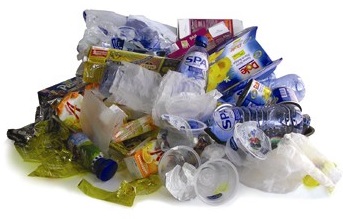 SINGAPORE (ICIS)–China’s import ban on plastic waste could result in overuse of landfills and about 4m-12m tonnes of the commodity material ending up in the ocean on an annual basis, a report by the American Association for the Advancement of Science (AAAS) said late on Wednesday.
SINGAPORE (ICIS)–China’s import ban on plastic waste could result in overuse of landfills and about 4m-12m tonnes of the commodity material ending up in the ocean on an annual basis, a report by the American Association for the Advancement of Science (AAAS) said late on Wednesday.
China on 31 December 2017 implemented a policy permanently banning imports of non-industrial plastic wastes.
“An estimated 111m tonnes of plastic- waste will be displaced with the new Chinese policy by 2030,” according to the research report titled “The Chinese import ban and its impact on global plastic waste trade”.
“Suggestions from the recycling industry demonstrate that, if no adjustments are made in solid waste management, and plastic- waste management in particular, then much of the waste originally diverted from landfills by consumers paying for a recycling service will ultimately be landfilled,” AAAS said.
Eight types of plastic waste from consumer goods are now banned including plastic- waste polymers of PE, PS, PVC, PET, and others (for example, PP), as well as bales of PET plastic bottles, aluminum plastic film, and compact disk/digital video disks.
“While recycling and the circular economy have been touted as potential solutions, upward of half of the plastic waste intended for recycling has been exported to hundreds of countries around the world,” AAAS said, adding that China, which imported a cumulative 45% of global plastic waste since 1992.
Only 9% of plastic- waste has been recycled worldwide, with 80% of global plastic- waste being landfilled or ending up contaminating the environment, AAAS said.
“As 89% of historical exports consist of polymer groups often used in single-use plastic food packaging (polyethylene, polypropylene, and polyethylene terephthalate), bold global ideas and actions for reducing quantities of nonrecyclable materials, redesigning products, and funding domestic plastic- waste management are needed,” it added.
